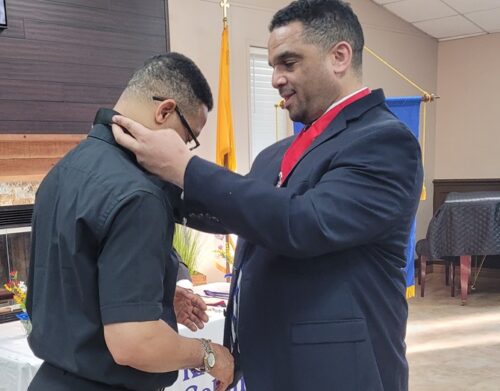knights of columbus
District Deputy
The district deputy is the official representative of the supreme knight and the state deputy when he visits a local council. He’s an important part of the state council and is expected to attend the state organizational meeting, the mid-year membership meeting and the annual state convention. By taking an active role, he will ensure a stronger future for each council in his district, his jurisdiction and the overall good of the Order.

